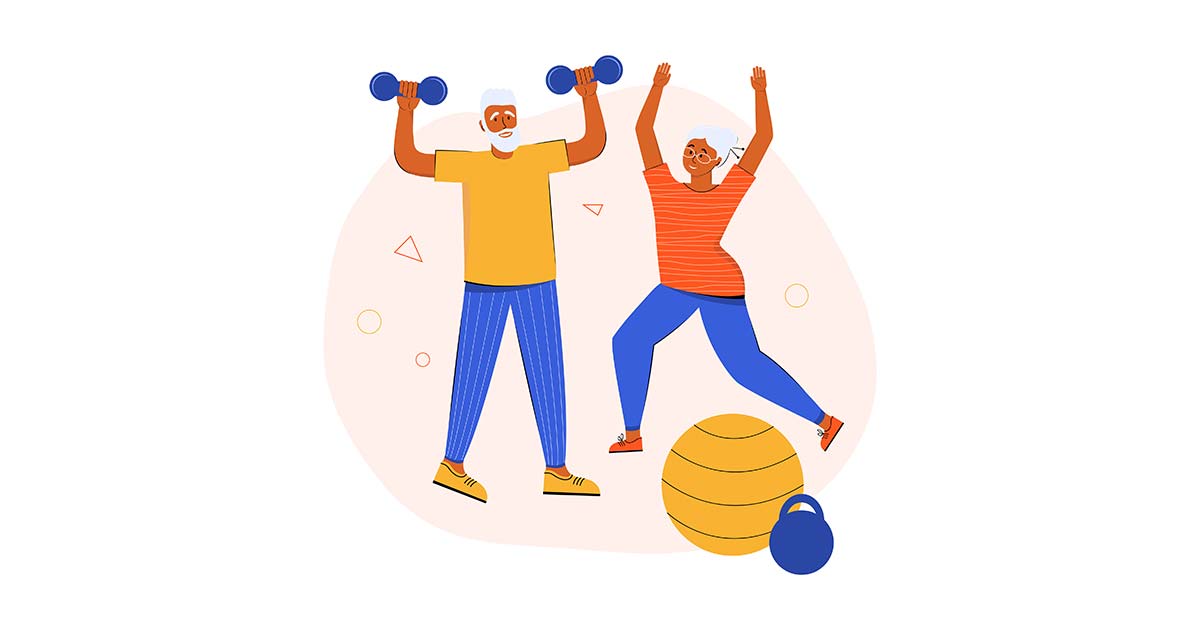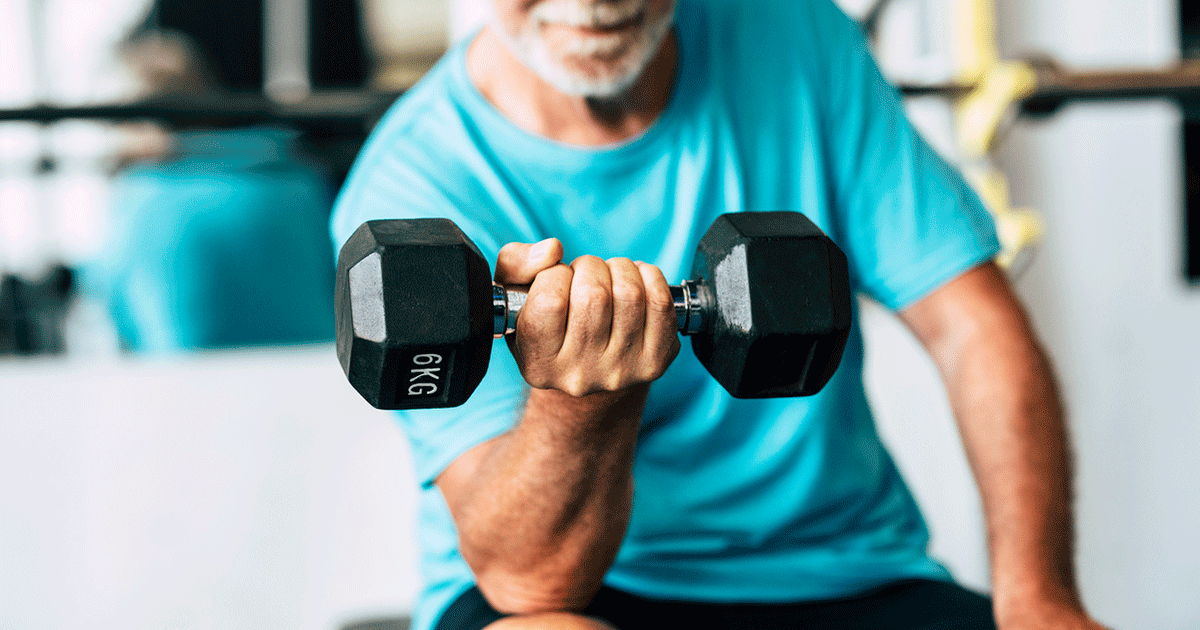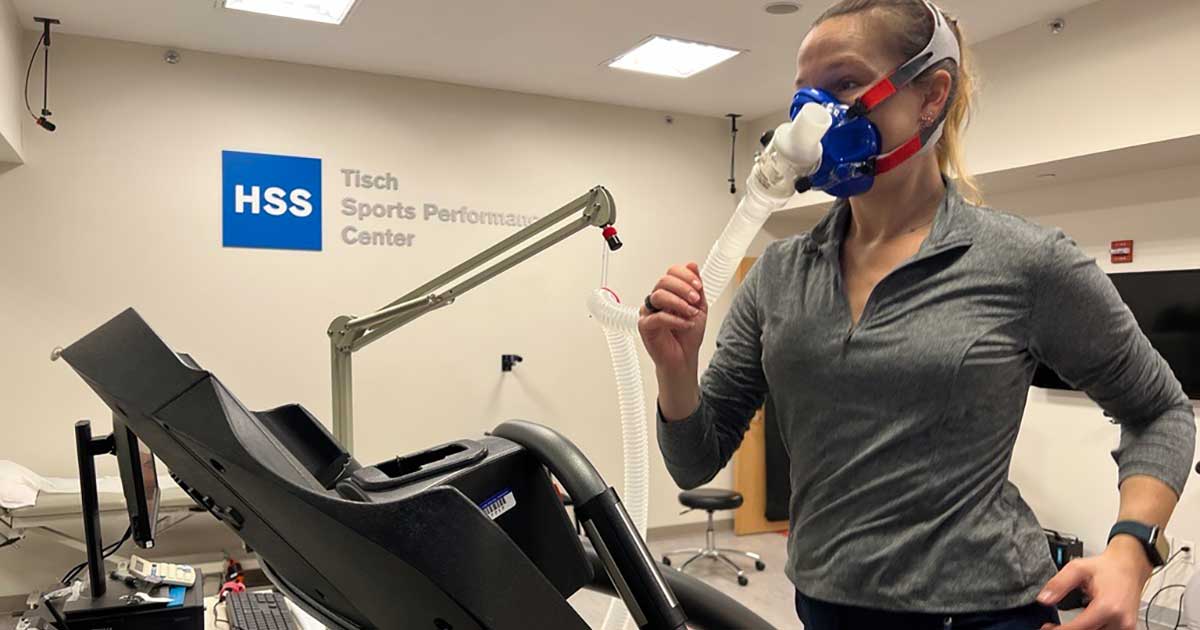
Advice to improve your movement, fitness, and overall health from the #1 in orthopedics in the U.S.
How Aging Affects Testosterone and Muscle Mass in Men
It’s possible to counteract age-related losses in muscle mass related to lower testosterone levels.
Advice to improve your movement, fitness, and overall health from the #1 in orthopedics in the U.S.

There’s also a general lack of knowledge about testosterone itself. Most people know that it’s a hormone present in males, but many may not know what that hormone actually does. “Testosterone helps build muscle by generating proteins, which then increases muscle strength,” explains Matthew Accetta, MS, ACSM-CEP, CSCS*D, CSPS, an exercise physiologist at HSS. Essentially, when you have adequate testosterone, it will help stimulate muscle growth.
Beginning around age 40, men’s testosterone levels start to gradually drop by about 1 to 2% each year. Reduced testosterone levels are quite common, with over a third of men over age 45 having levels below what is considered normal for their age. Men may notice symptoms of fatigue, depression or loss of facial and body hair. Beyond the decrease in muscle mass, lower levels of testosterone can also cause brittle bones, which increases the risk of fractures.
How does aging affect testosterone and muscle mass?
According to Accetta, as people age, they lose about 3 to 5% of their muscle mass per decade. After age 30, this decrease can be lessened through proper nutrition and exercise. However, as men get older and testosterone levels speed up their decline, this becomes increasingly harder. “Once you hit age 60, the rate of muscle mass decline goes up, and you’ll lose even more muscle mass because you’re getting older, not producing as much testosterone, and you’re not as active,” he explains.
This is where exercise plays a big role. Being more active can help maintain muscle mass despite declining testosterone levels. Eating a healthy diet with adequate animal or non-animal protein can also help with muscle mass. “Generally, about 0.8 to 1.2 grams per kilogram of body weight is what's recommended per day,” Accetta says. “So if you’re a 200-pound man, that’s about 72 to 110 grams of protein daily.”
What exercises can help build muscle mass?
While a wide variety of exercises are recommended for people as part of a healthy lifestyle, some forms of exercise may be better than others for building muscle mass. According to Accetta, strength training and multi-joint exercises, such as squats, deadlifts and chest and shoulder presses, are the most beneficial. “Activating the large muscle groups releases growth hormones, which helps stimulate the production of proteins in a similar way to testosterone.”
Not only will strength training help build muscle mass, but it can also help burn fat, which can become harder to do with aging and decreasing testosterone levels. Many men may notice as they age that their metabolism slows down and they put on fat more easily. Strength training can help increase your metabolism so you burn more calories. This can help you lose weight and excess fat.
When should I see a doctor for low testosterone?
If you start seeing changes in your weight and energy level despite maintaining your same diet and activities, it’s a good idea to call your doctor. If you start feeling tired despite getting a full night’s sleep or you’re gaining weight but haven’t made any significant changes to your diet, these are signs that your testosterone levels may be low. And if you have a personal or family history of endocrine problems, you may be at higher risk for low testosterone.
Men may also want to consider getting their testosterone levels checked as part of their yearly physical. “I would recommend it for men as part of their annual blood panel,” says Accetta. Particularly, men who are experiencing abnormal symptoms should consider asking their doctor about getting their testosterone level checked.
To summarize, many factors play a role in maintaining adequate muscle mass, but the most important are healthy testosterone levels, adequate protein intake, and proper exercise. Men can help build muscle mass by doing strength training exercises even if their testosterone levels are declining. If you are experiencing symptoms of low testosterone, it’s always a good idea to reach out to your doctor and ask about getting your testosterone level checked.
Published 6/4/2023


